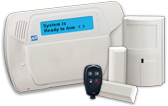5 Fire Safety Tips you should Teach your Children
Home fires claim more casualties in the Canada each year than any other type of household accident. Children are especially vulnerable, which is why moms and dads everywhere should have a fire safety plan. Here are a few things to keep in mind when developing that plan.
- Fire Safety Plan
The most important fire safety tip for children is to have a plan and ensure that everyone in the family knows how to follow it. Your plan should include:
- Identifying at least two ways out of every room
- Knowing who is responsible for getting younger children out during an emergency
- An established meeting place once everyone is outside
2. Working Smoke Detectors
There should ideally be a smoke detector in each bedroom, and at least one on every floor of your home. Allow your children to help you install or test them, and explain what they are used for. Schedule a time on your calendar every month to check your detectors, and make your kids responsible for helping. You could even add checking smoke detectors to an older child’s chore list. Even better is to make sure you have a monitored smoke and heat detector that will automatically get help if there is a fire. You could also add a smoke ring or a fire fighter device to try and take advantage of your hardwired smoke detectors that are in the home already. Also, do not forget that smoke detectors usually last 7-10 years, when they reach the end of their life replace them with new ones. Removing all your smoke detectors from your home only makes it less likely to save property or life in the event of a fire.
3. Operating Fire Extinguishers
Working fire extinguishers are just as important as smoke detectors. You should have one in your kitchen and near every heat source such as your furnace. Older children should know where each one is located and how to use it. Your fire extinguishers should also be checked each month at the same time you inspect your smoke detectors.
4. Fire Drills
You can easily perform a fire drill at the same time you test your smoke detectors. During a fire drill, you should reinforce key information that would help kids stay safe during an actual fire. Some things to mention include:
- How urgent it is to evacuate your home right away rather than trying to put out the fire yourself
- The need to call 911 as soon as you have evacuated
- The importance of staying low to the ground when trying to exit a building
- Using the back of your hand to test whether or not a door is hot and safe to open
- The fact that placing wet towels around a door will provide you with more time to be rescued in the event you are trapped inside a room
- How to “stop, drop, and roll” if your clothes do catch on fire.
Reiterate how important it is not to go back inside a burning building. Stress to your children that items left behind can be replaced, but they cannot.
5. Establishing Rules
It is better to prevent a fire in the first place than to react to one afterwards. As such, you should implement the following fire safety rules:
- Never play with matches or lighters (as an added precaution, always lock up matches and lighters so that children cannot access them)
- Do not leave candles or a fireplace burning while unattended
- Stay at least three feet away from space heaters
- Store flammable items in a safe location, and keep them away from heat sources at all times
- Do not use a generator, camp stove, or barbecue grill indoors
You may also need to set specific rules for your children based upon age. For example, you could need to prohibit very young children from using the stove without being directly supervised. Be sure your kids know what these rules are as well as the consequences for failing to follow them.
Implementing a fire safety plan is important; however, doing so does not eliminate all of the risk. As an added measure of protection, you may want to consider installing a security alarm to monitor for fire as well as break-ins, or if you have one add some smoke detectors to it so if there is a fire you and the fire department can know about it early on.





